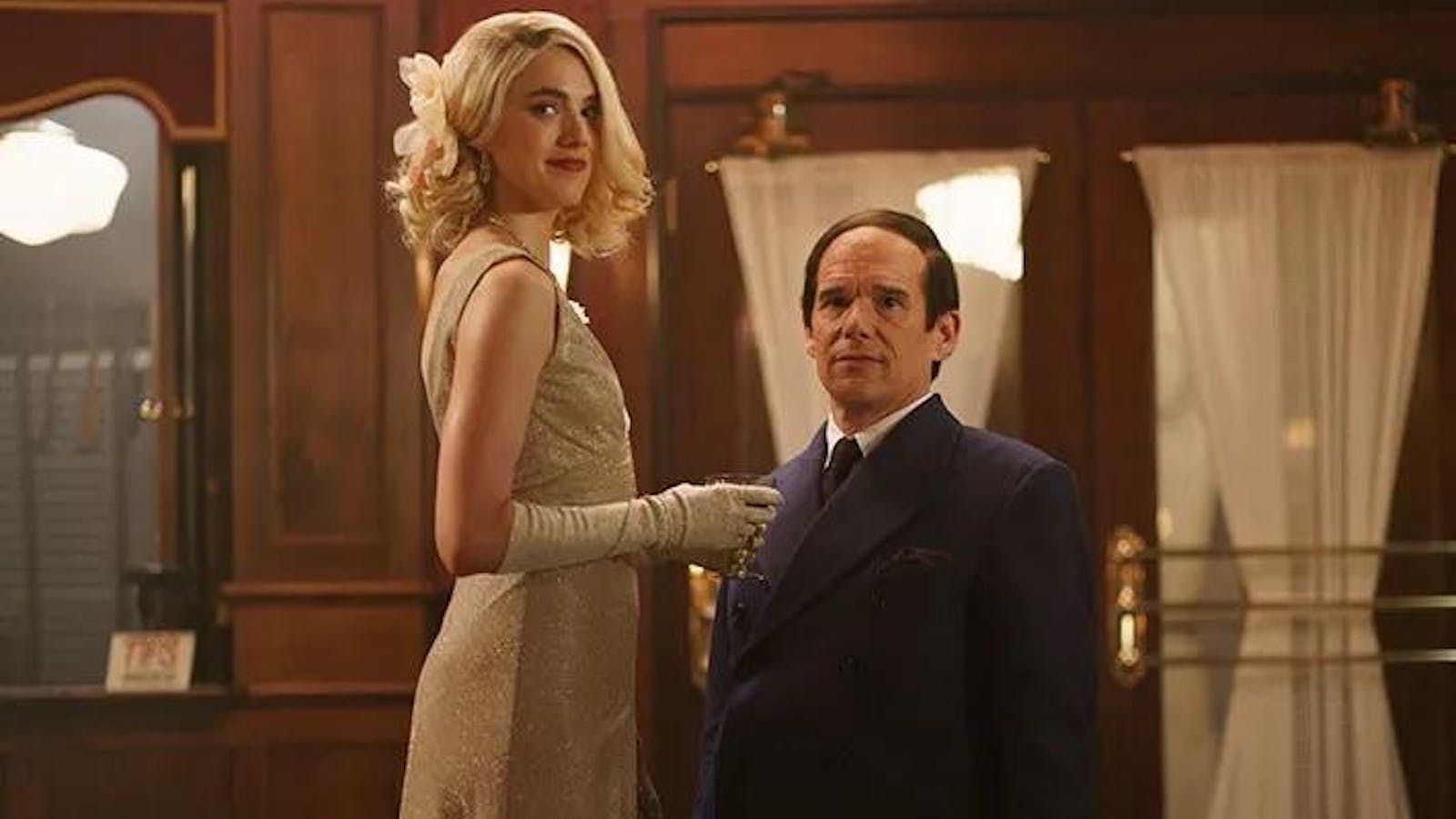Lorenz Hart’s downfall is palpable in ‘Blue Moon’ despite faltering plot
With Richard Linklater behind the camera and Ethan Hawke center screen, “Blue Moon” offers an intimate insight into an artist’s unraveling as well as Broadway’s golden age. The biopic follows Lorenz Hart (Hawke), a lyricist and one-half of a songwriting duo with Richard Rodgers (Andrew Scott). Together, the pair wrote hits like “My Funny Valentine” and the titular track, “Blue Moon.”Set one evening in Sardi’s, a New York bar and a staple for Broadway stars, the movie explores Hart’s reflection of the partnership and his declining career. After opening night of “Oklahoma!,” Hart languishes over the smashing success that Rodgers has found with his new songwriting partner Oscar Hammerstein II (Simon Delaney). After “Oklahoma!,” Rodgers and Hammerstein went on to become one of Broadway’s most famous duos, contributing to Broadway shows such as “The Sound of Music.”Despite his disdain for the show, Hart knows “Oklahoma!” and by extension his old collaborator will be extremely successful, which only adds to his misery. This cements the core of the film: A sad, withering man who was once a genius has been isolated due to alcoholism and emotional detachment. Hart who was believed to have lived as a closeted gay man -struggled to form any lasting relationships, and this shows in Hawke’s performance. At Sardi’s, Hart laments to anyone who will listen. Eddie (Bobby Cannavale), the bartender, is subject to Hart’s lyrical monologues about life, work and an illustrious 20-year-old girl, Elizabeth Weiland (Margaret Qualley). Hawke delivers his seemingly endless dialogue with swift sincerity. At the same bar, legendary writer and author of “Charlotte’s Web” E. B. White (Patrick Kennedy), reads quietly at a nearby table until Hart pulls him in to witness the throes of his misery. Nearby, Rodgers appears burdened by competing loyalties that seem to drain him over the course of the evening. Scott deftly manages these overwhelming tensions with a performance that suggests carefully crafted self-censorship. At Sardi’s, the actors provided a range of performances. Cannavale is dashing and an artfully restrained comic. Qualley plays the role of charming protege well, but struggles to summon any semblance of range beyond biting her lip. Kennedy is uncanny as the “Charlotte’s Web” author, whose quiet composure offers a stark contrast to Hart’s theatrical disposition. But the most astonishing feat of the film is Hawke’s transformation as Hart. His shrunken stature, crinkling face and bald spots render the actor unrecognizable. Hawke embodies the awkward, drunken whimsy and delirium of Hart with an effusive earnestness. Hart’s infatuation with Elizabeth is uncomfortable and difficult to understand but is critical to Hart’s story. With a crumbling career, he desperately clings to the young beauty for a final reach at validation. While the movie effectively captures a man’s unraveling, it fails to build beyond its initial premise. The central tension the break in Hart and Rodgers’ partnership never comes to a head. On top of that, Linklater dances around Hart’s suffering, and the film itself never reaches a climax. Though some of his tangents are poetic and almost moving, Hart’s endless theatrics fall flat. Nevertheless, Hart’s character remains compelling in some ways despite his professional fall from grace, he remains dedicated to his artistry. As all of Hart’s bridges burn, he dances right across them.
